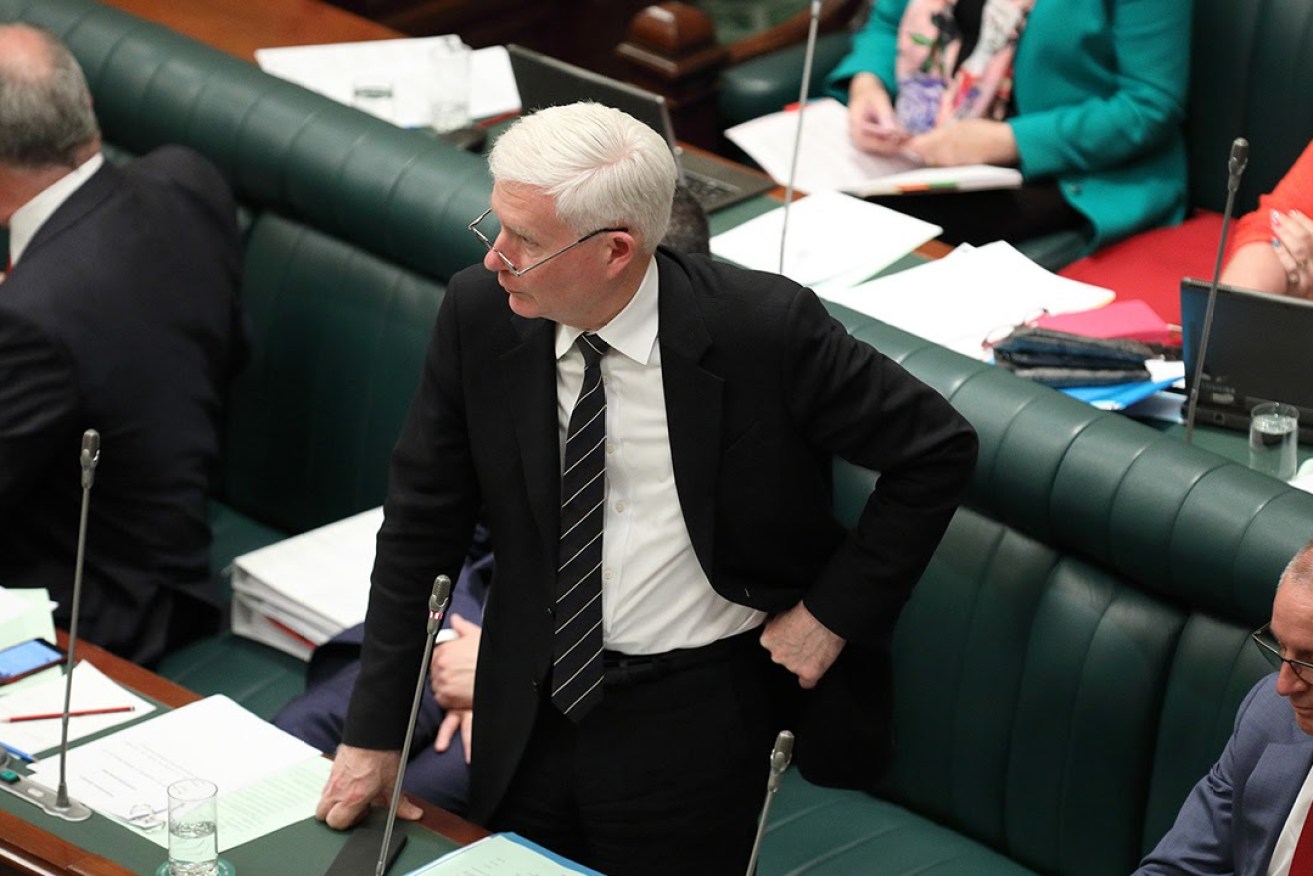Labor flags referendum on electoral boundaries
South Australians could face a referendum at the next election as the Weatherill Government doubles down on its opposition to electoral boundary review changes that it has already challenged – and lost – in the Supreme Court.

John Rau in parliament this week. Photo: Tony Lewis / InDaily
Last year’s redistribution saw the state Liberals effectively handed two further seats that would see them win a thumping majority if they replicate their 2014 statewide vote at the next election.
Labor challenged the determination in the Supreme Court, arguing it ignored the principle of “one vote, one value” in seeking to ensure “electoral fairness”, by failing to ensure that each electorate had roughly the same number of voters as far as practicable.
But the ALP not only lost the challenge, it was found liable to pay the Liberal Party’s court costs after the full Supreme Court bench, headed by Chief Justice Chris Kourakis, found it was “not implicit that the Boundaries Commission must pursue the objective of achieving a redistribution in which each electoral district has an equal number of electors”.
However, the Government has forged on with its opposition today, seeking to change the state’s constitution act at a referendum to be held concurrent to the state election next March.
The change would enshrine the principle of ‘One Vote, One Value’ in all future boundary redistributions.
“This is not about Labor or Liberal, this is about whether or not a voter in one seat has a vote which is worth more than a voter in another seat,” Attorney-General John Rau told reporters today.
But it would also enshrine the principle that has helped Labor remain in power for the past 16 years, despite having only achieved a statewide majority once in that time.
Liberal state president John Olsen told InDaily it was “clear the umpire’s decision doesn’t happen to suit Labor”, calling the move “a significant diversion to ensure the election campaign isn’t run on their record in Government”.
Shadow Attorney-General Vickie Chapman said the move was “clearly just an act of a desperate government to cling on to office”.
“If you don’t win, don’t blame the system,” she said.
A referendum will not be held unless the proposal passes state parliament, with a bill to be introduced today.
That could see some horse-trading with minor parties, with the Greens today saying they are committed “to ensuring that South Australian voters get a parliament that truly reflects the will of the people”.
“Under the current system, electoral boundaries are set according to a fictional view of the world that assumes there are only two parties – that doesn’t reflect the reality of today and it doesn’t reflect what South Australians have chosen,” Greens MLC Mark Parnell said.
“In recent elections in South Australia, around a third of voters didn’t vote for either of the old parties. These voters clearly preferred alternatives such as the Greens, other small parties and independents.
“Sticking with the entrenched ‘two-party’ view of the world doesn’t respect the wishes of South Australian voters… the Greens are seeking reform to ensure that the parliament represents the diversity of those who elect them.”
The Greens say a multi-member electorate system would be “fairer… as the proportion of seats won more closely reflects the proportion of votes received”.
Labor’s move can also be seen as a move by the ALP to ensure that future boundary commissions are not held to a precedent determined by the judgement in its failed Supreme Court appeal.
But Rau insists under the commission’s most recent interpretation, “some votes are worth substantially less than others – this is fundamentally undemocratic”.
The ‘one vote, one value’ principle, he argued, “has been a byword in SA politics for at least 50 or 60 years” as “the appropriate democratic method by which people should be elected to the lower house of parliament… right up until the most recent decision of the electoral boundaries commission”.
He said the referendum was intended to “restore the balance [that existed] prior to that determination”.
“They are deliberately malapportioning electorates… they made a decision that has departed from all history,” he said.
“The fundamental principle of the state electoral system is that each seat should, as far as practically possible, contain the same number of electors as any other seat.”




